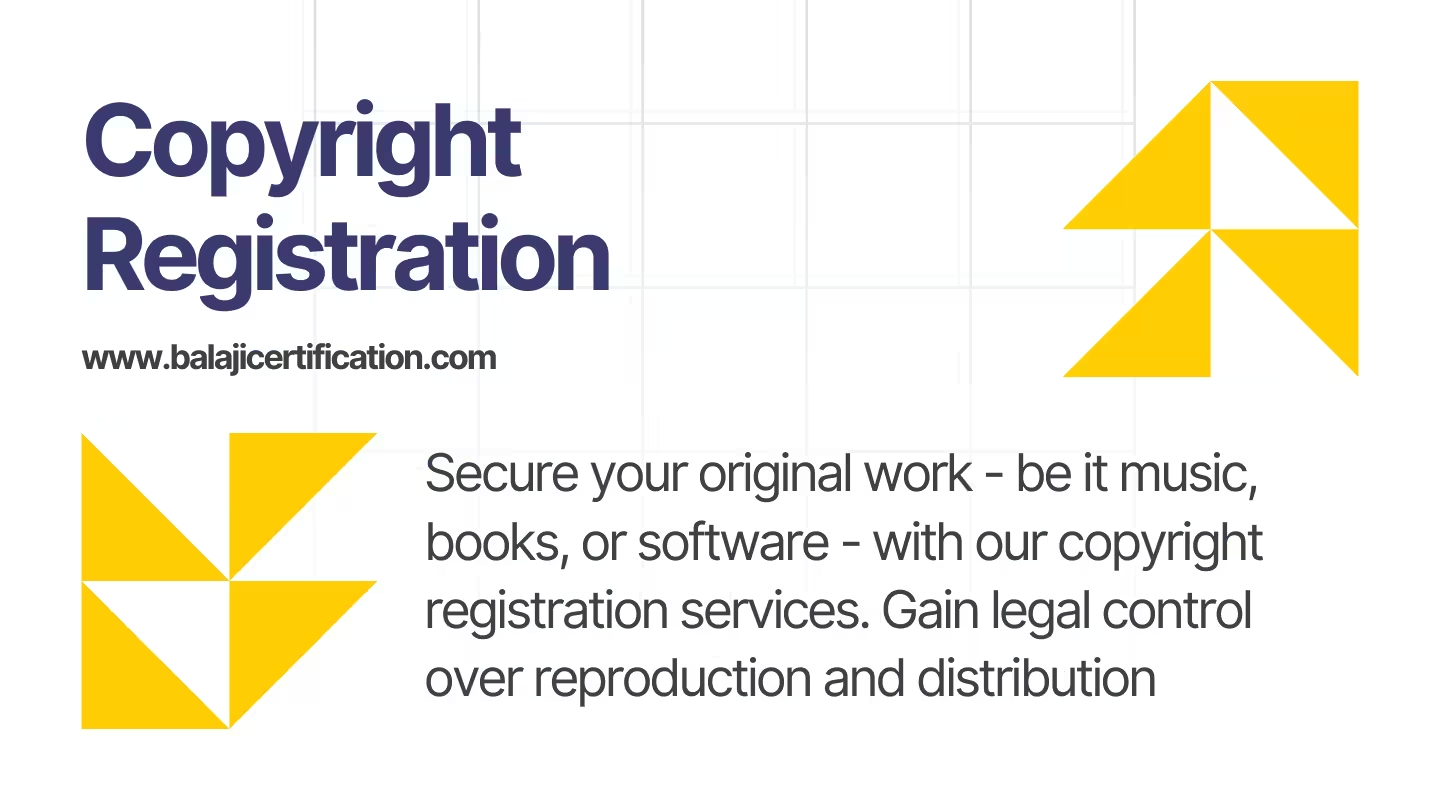Everything You Need to Know About Copyright Registration
In today’s digital age, protecting your creative works is more important than ever. Whether you’re an artist, writer, photographer, or any content creator, copyright registration provides essential legal protection. This blog will guide you through the key aspects of copyright registration and why it’s crucial for safeguarding your intellectual property.
What is Copyright Registration?
Copyright registration is the legal process of securing your rights to original works of authorship. These works include literary works, music, art, software, and more. By registering your copyright, you officially document your ownership of the work, offering a layer of protection against unauthorized use or infringement.
Why is Copyright Registration Important?
While copyright exists from the moment you create your work, formal registration offers several key benefits:
- Proof of Ownership: Registered copyright provides a certificate that serves as legal proof of ownership in court.
- Public Record: Once registered, your copyright is entered into a public database, offering transparency and recognition of your ownership.
- Infringement Protection: If someone uses your work without permission, a registered copyright allows you to take legal action and claim statutory damages, which are often higher than what you would get without registration.
- Global Protection: Copyright registration can also provide leverage for international protection under treaties like the Berne Convention.
How to Register a Copyright
Registering a copyright is a straightforward process. Here’s how you can get started:
- Determine Eligibility: Ensure that your work is original and qualifies for copyright protection. Most creative works, including books, films, and music, qualify.
- Prepare the Application: Fill out the copyright registration form. You’ll need to provide information about the creator, the nature of the work, and the date of creation.
- Submit Your Work: Along with the application, submit a copy of your work to the copyright office. This is known as the “deposit” and is a requirement for registration.
- Pay the Fees: There is a small fee associated with copyright registration, which varies depending on the type of work and the application process.
- Receive the Certificate: Once your application is reviewed and approved, you will receive a certificate of registration.
What Can Be Copyrighted?
Copyright covers a broad range of works, including:
- Literary Works: Books, blogs, poems, etc.
- Artistic Works: Paintings, drawings, sculptures.
- Musical Works: Songs, sheet music, recordings.
- Dramatic Works: Plays, performances.
- Photographs: Digital and printed images.
- Software: Computer programs, websites.
- Films and Videos: Movies, short films, animations.
How Long Does Copyright Last?
The duration of copyright protection varies. For works created by individuals, copyright lasts for the life of the author plus 60 years after their death. In the case of corporate authorship, the copyright lasts for 60 years from the date of publication or creation.
Frequently Asked Questions About Copyright Registration
1. Do I have to register my work to have copyright protection? No. Copyright protection exists the moment you create an original work. However, registration provides stronger legal backing and the ability to pursue statutory damages in case of infringement.
2. Can I register a copyright for free? While copyright protection is automatic, formal registration involves a fee. The fees are minimal compared to the legal protection it offers.
3. Can I copyright an idea? No. Copyright protects the expression of ideas, not the ideas themselves. For example, you can copyright a written book, but not the concept behind it.
4. What happens if someone infringes on my copyright? If someone uses your work without permission, you can take legal action. Registered copyright allows you to claim statutory damages and attorney fees.
Conclusion
Copyright registration is an essential step for protecting your intellectual property. Whether you’re a small business, an artist, or a content creator, securing your rights ensures that your work is legally protected against unauthorized use. By registering your copyright, you gain greater control over your creations, providing peace of mind and legal leverage in the event of infringement.
If you haven’t registered your copyright yet, now is the time to take action. Protect your creativity, and let your work shine with confidence!

